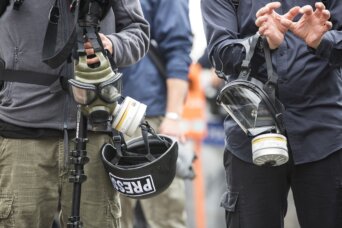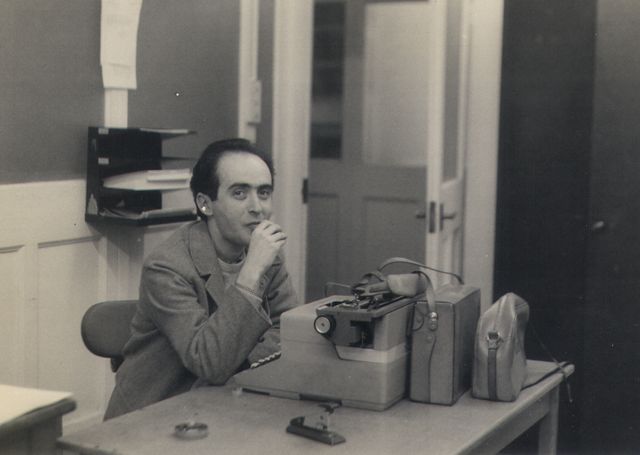- About
- Topics
- Picks
- Audio
- Story
- In-Depth
- Opinion
- News
- Donate
- Signup for our newsletterOur Editors' Best Picks.Send
Read, Debate: Engage.
| topic: | Democracy |
|---|---|
| located: | Mexico, Cuba, Brazil |
| editor: | Ellen Nemitz |
While journalism, especially independent, has been consolidating itself as an essential part of democracy, attacks against media professional continue to occur worldwide.
In Mexico, for example, one of the most dangerous places to be a journalist in the world, the International Federation of Journalists counts over one hundred professionals killed since 2010, with a 95 per cent rate of unsolved crimes. In 2020 alone, there were nine murders of media personnel reported – not including missing journalists. "Because of this violence and the need to silence critical investigations, journalists are especially targeted by groups belonging to organised crime and sectors of power in connivance with them,” explains the institution.
In Cuba, where private ownership of the mass media is prohibited, there are several reports of professionals who have been arrested and threatened for doing their jobs. One of these cases happened with Abraham Jimenez Enoa. The co-founder of local magazine El Estornudo and now columnist for The Washington Post was subjected to a humiliating interrogation, which led to the decision that he should stop activities related to the United States. "I suffered a very serious act of violence on Thursday, but what happened to me was not even the worst of the arbitrary detentions that political dissidents, activists, artists and other independent journalists frequently suffer in Cuba,” he wrote in the article. "If this is my last column here, it’s because I’ve been imprisoned in Cuba."
Being a journalist in Brazil is also a challenge in its own right, especially as the president continues his crusade against the media. The Journalists National Federation monitored Jair Bolsonaro’s speeches, interviews, live talks and Twitter and found in the first six months of 2020, 245 attacks against the media – more than one per day.
This happens in a country with an open scar regarding the impunity for crimes against journalists. On October 25, the murder of the journalist Vladimir Herzog (known as Vlado) commemorated 45 years. Only two years ago, when Brazil was condemned by the Inter-American Court of Human Rights due to the country's omission and delay in investigating the case, considered a crime against humanity, the Public Prosecutor’s Office reopened the investigation and, on March 2020, denounced six people for the murder and forged suicide.
On Instagram, the Vladimir Herzog Institute, created to “keep Vlado’s memory alive and honour the values he defended in personal and professional trajectory,” denounced the impunity for this and other several crimes committed during the military dictatorship and demanded justice for the journalist.
In the context of threats to democracy worldwide and the use of the pandemic to reinforce media control, as shown by the report 'Freedom on the net 2020', the urge to protect journalists is more evident than ever. "Only by investigating and prosecuting crimes against media professionals can we guarantee access to information and freedom of expression. Only by speaking truth to power can we advance peace, justice and sustainable development in our societies,” said the Director-General of UNESCO, Audrey Azoulay.
Image by Engin Akyurt

